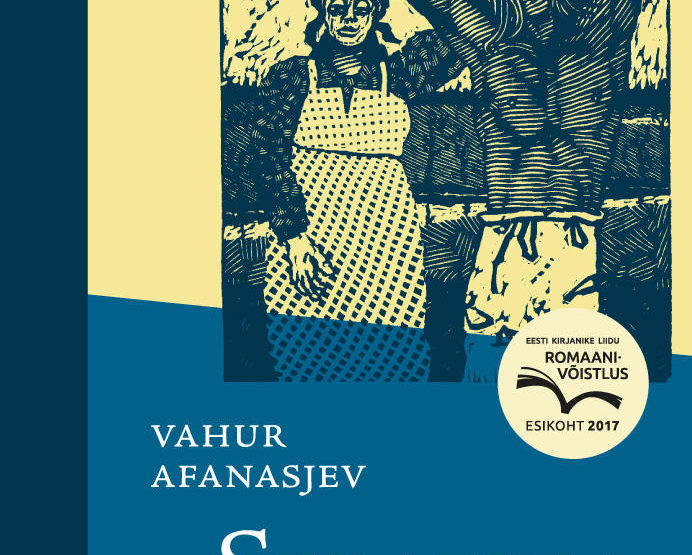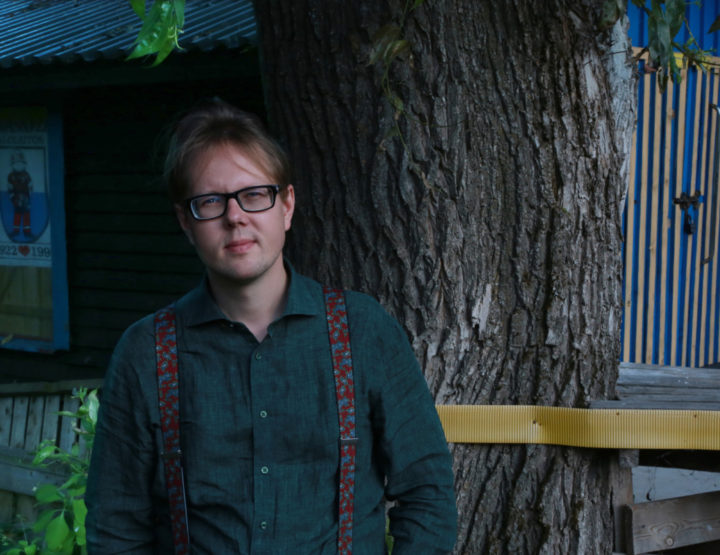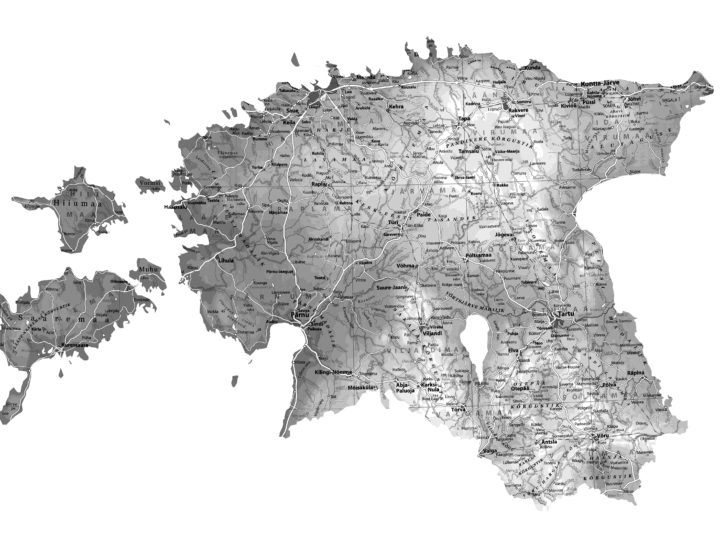Excerpt from the chapter “Deportation”
The widow Glafira’s sauna has been heated. Sitting in the cramped dressing room, the mugginess of an intense steam session still suspended in the air, are Edison Vassilyevich and “Chicken Uncle” Sergei: justifying his nickname, he has corralled a couple of hens into the room for warmth and “so that we might be in the company of ladies”, as he quips. He scatters some feed for the chickens to peck at—hanging from the wall is a vegetable basket, into which fistfuls of grain have been tossed along with soft, sprouting potatoes to be boiled up for pig fodder. There’s no avoiding the vodka bottle here, either. Sergei also managed to save half a small barrel of pickles until springtime, and even brought a saucer of honey along for dipping.
“Oh, come and sit inside, you old men,” Glafira coaxed, but they stayed in the sauna building after steaming, all the same. Both seemingly needed to get something off his chest. Sergei begins.
“The thing is… Well, to me, it’s all familiar, of course. Not as if before the war, we…”
“We know,” Edison affirms.
“Well, there you go. Don’t be offended, but those lists—didn’t they show you the lists, then?”
Edison is silent.
“Right. They took young ‘uns this time, an awful lot of them. I’m not saying how or what, you understand—what can we really do about it? But nevertheless—young ‘uns. Everyone was getting by just fine here, you could’ve put any one of us on the trains. Better if they had: go ahead and take away the old ones, God’s speed to you; but they took the young ‘uns! With children! I, you know—I’m a wifeless vagabond. Could’ve sent me away along with old Glafira here. She’s hanging onto life by a thread already, may the Lord have mercy on her!”
“The Lord?!” Edison sputters lividly. “What ‘Lord’ are you talking about?! The Lord God! If God truly existed, then I’d kick Him right where it counts! I’d take Him to court; I’d annihilate Him! Are these God’s works? Is this how He loves His children?”
Each of Edison’s words is progressively louder. Sergei shakes his head and scratches his beard agitatedly. “Don’t you go… That’s not necessary.”
“But…”
Sergei interrupts him. “You forget that God and the Devil come from the same family.”
“Even worse!” Edison exclaims, raising the blue shot glass to his lips and emptying it without waiting for his companion.
“There is, I’m saying, a passage in the Book of Isaiah that goes: “I form the light, and create darkness: I make peace, and create evil: I the Lord do all these things.”[1] And then it goes on to say: “Woe unto him that striveth with his Maker! Let the potsherd strive with the potsherds of the earth. Shall the clay say to him that fashioneth it, What makest thou? or thy work, He hath no hands?”[2] For the Lord works in mysterious ways. Maybe the Devil doesn’t exist and there’s only God Himself with His will and all He’s capable of. Are we then capable of being human? Forgive me for having brought up the lists. It’s an outright folly, an impossibility—as if you could make such things lesser towards the greater. No, my dear man: God has made it such that this is how people behave. We’ve gotten along nicely though, too; amiably. I believe those days will return because, in truth, God loves man. Perhaps He Himself, the Almighty, isn’t entirely satisfied with the way he shaped the clay, either? Still, we don’t want another flood now, do we? That’s what happened: Moses lay forty days and forty nights before God so He would not destroy us.”
Sergei drains his glass dry and refills both.
“Well, you’re not called Father Sergei for nothing. Where do you derive the strength to talk like that?” Edison asks with a sigh. “I don’t actually understand everything you said, but I feel better. I realize that when we don’t always do everything as justly as we should, it’s… handicraft. That’s the way it’s done.”
Sergei nods. “But how are you able to come to terms with it yourself? To make peace? The Germans did burn down your whole village.”
“They did,” Sergei replied. “And not only they.”
He goes to the door, cracks it open, and pokes his head outside: there’s no one to be seen in the moonlight; only the snow drifts which rolled across the landscape in swells during the day and acquired brittle shells again at night. The windows of the little house across the yard are also dark—Glafira had snuffed out the petroleum lamp and snuggled into bed.
“Alright, let’s drink together,” Sergei says. He raises his glass, then sits down on the bench and continues. “So, where did I leave off? I can’t say how I come to terms with it. Perhaps I don’t. No one should entirely. And I didn’t phrase anything particularly well—I spoke abstrusely, because I myself haven’t figured it all out. There you have it. I didn’t make it to Berlin, you know; I’ve told you that. The last place I lived was Yushkino—that’s across the lake from here and then a little further, nestled among the marshes. My relatives were done in back in ’19, during the civil war, with pitchforks. They left my grandmother and me alive. I can’t even remember my parents, you understand?! We lived in a whole different place then, down in the south, but we left: first to Ostrov, then to Pskov—the monastery there was still operating somehow.
“Grandmother wanted me to grow up to be a priest. All my relatives had been clergy: my paternal grandfather was a priest, as was his father. Vot, and so it was: Grandmother raised me, and I visited the priests in secret to study. They even wanted to send me to monastic school—good thing they didn’t. That was back during the NEP[3]. But then came the 30s and anyone at the monastery who didn’t disperse was declared an enemy of the people. That’s the way things were.”
They refill their glasses and drink again.
“Even so, I can’t figure out how you’re capable of making amends with your god,” Edison remarks. “I come from the village of Staraya Russa. My parents were progressive, hence my first name. My father was a mud hauler—there were mud baths there. Mother did the procedures. When I was serving my conscription, my parents disappeared—just like that. No one told me; I had to hear about it through acquaintances. The apartment was sealed shut and then, new residents moved in. I’ll never make peace with it. It’s understandable: there exist times like that where society must change. Change can never take place peacefully, we do realize that, but I’m a nobody—I’m not capable of thinking big like maybe he does there with his big moustache. And it’s been ages since I could think the way your god does: loving people and putting them to the test; dealing out light and darkness. No, if it’s up to them, then I won’t forgive either one: neither Stalin nor God.”
“But what about Hitler—would you forgive him?”
Edison falls silent for a few moments and turns red in the face. “What do you mean?! Of course I wouldn’t—him the very least! Hitler’s an enemy of our people. The fascists wanted to destroy us. We destroyed them, and it’s as simple as that. I myself have killed fascists by my own hands. And I lobbed a grenade into a trench, but the blood and guts there, the gurgling, fuck, a fascist, but I don’t feel bad. Just saying that with them, it’s good: they say, hey, we’re going to come and kill you, and you fight back, you kill them; they don’t come and say they love you.”
The chickens, which have been scratching in the dirt at their feet throughout the whole conversation, start clucking nervously. Sergei lifts a finger to his lips and makes a quelling gesture, but not to the fowl.
“Oh God, God, Edison Vassilyevich—best you hold your tongue! True, hardly anyone is likely to hear us here, but be quiet all the same. It’s better that I not hear you and you not hear yourself, either. Or me, likewise. Agreed?”
“Agreed,” Edison sighs heavily. “There’s still vodka left. Let’s drink, and then we should go take a look at the sauna: there could still be warmth in the stones. We’ll throw some water on them and then, straight to the snow bank. There’s a spot I scouted out here beforehand where you can jump in without worrying about landing in chicken shit or anything.”
[1] Isaiah 45:7 (King James Bible)
[2] Isaiah 45:9 (King James Bible)
[3] The New Economic Policy, a state-controlled but more market-oriented economic policy proposed by Lenin to help the Soviet Union recover after World War II.




